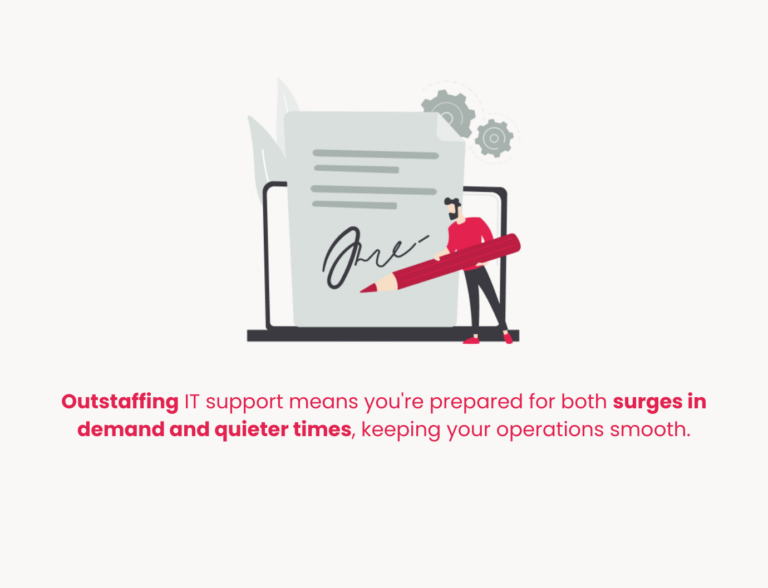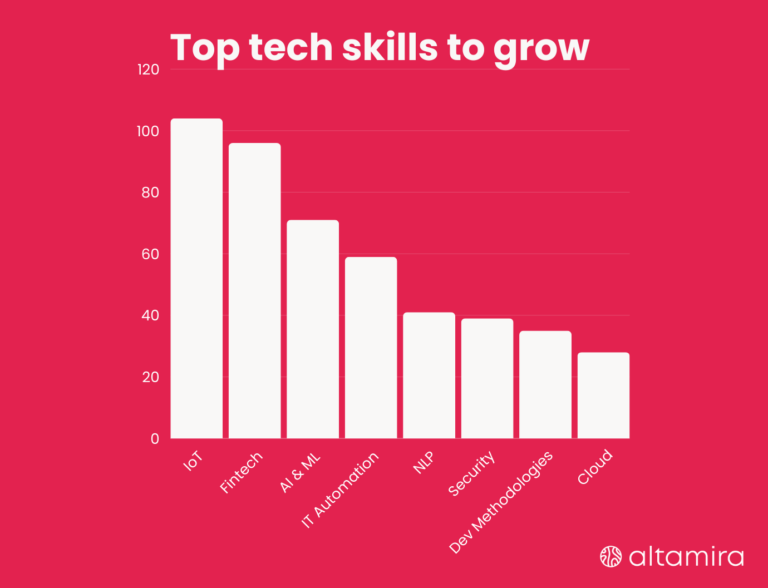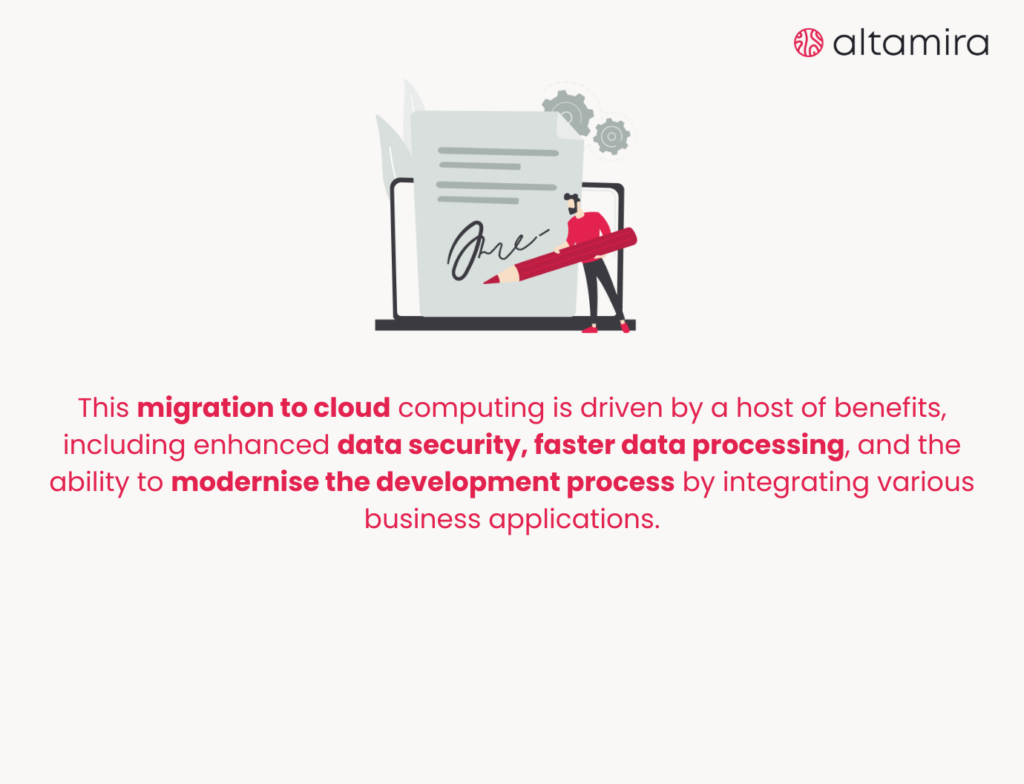Manoeuvring through the tech, regulatory, and financial space of small or medium-sized business management often calls for some extra support. This is where outstaffing strategy steps in, offering a pathway to improved efficiency, cost reduction, and business expansion.
Let’s look into the transformative impact of engaging external experts. It will equip you with actionable insights to align your choices perfectly with your business’s needs.
Do you know?
- Nearly a quarter (24%) of small and medium-sized businesses turn to outsourcing and outstaffing to improve their operational efficiency.
- Approximately 45% of companies outstaff teams to take over some IT functions for cost savings, while 46% do so to tap into skill sets that they lack internally.
- 78% of businesses worldwide hold a positive view of their outstaffing relationships.
- The global IT outstaffing market in the USA alone is estimated at $32 billion and it is expected to reach $43.6 billion by 2027.
Choosing the right business strategy type depends on your company’s specific requirements and circumstances, as each option has its own set of benefits and limitations.
Although the immediate time and cost savings of outstaffing are widely recognized, many businesses have yet to fully understand its long-term advantages.
Maintaining an in-house development team for a company whose core business isn't IT services can be a needless burden. Tasks like recruitment, staff retention, motivation, and supporting the growth of engineers are complicated and important matters that require dedicated personnel and processes. Managing engineering teams is also a complex challenge, best handled by companies with expertise in this field.
When outsourcing software engineering, our clients find that these concerns are automatically addressed, allowing them to focus solely on the value added by their development teams.Tomas Masek, CEO at Altamira
Understanding the value of outstaffing strategies
For the growing businesses managing their IT infrastructure independently, it might be worthwhile to explore the opportunities outstaffing brings in. Here’s why considering this option could be a strategic move.
Access to niche expertise
When you’re running a business, it’s common to lack the necessary skills or resources to leverage the latest technologies to the full extent.
Engaging external experts can bring you niche expertise without the hefty expense of an administrative burden.
Additionally, this approach helps you steer clear of significant capital expenditures, which can sometimes destabilise the financial footing of small and medium-sized businesses.
Avoid capital outlay
IT outstaffing appears as a cost-effective strategy, aligning well with your budgetary limits while still offering the best possible technology solutions. This choice brings greater sustainability to your business and ensures affordability.
Get flexible & scalable
Expansion for the growing businesses often brings its challenges, commonly called “growing pains.” While it’s great to see increased customer demand for your products and services, this growth can sometimes stretch a company’s capabilities, making it tough to keep up.

The solution? Adopt external IT support services. This strategy mitigates these growing pains. Plus, it can scale back effortlessly during slower periods without significant loss.
Become more productive
You can gain immediate access to experts who swiftly address technical issues, eliminating delays. Outstaffing not only boosts the efficiency of your employees but also accelerates the pace of work completion.
By eliminating IT-related difficulties and providing expert assistance, IT outstaffing ensures that your team can work more effectively and focus on what they do best.
Become more competitive
Entrusting your IT functions can significantly improve your competitiveness in the market and enable you to deliver an optimal customer experience.
The engaged experts can guide you in utilising new systems and technologies. Such strategic approach streamlines your operations and positions you more favourably in a competitive marketplace.
Increase brand loyalty
Outstaffing in the IT sector plays a pivotal role in boosting brand loyalty. With its ability to connect businesses with specialised technical know-how and seasoned IT professionals, it empowers companies to offer reliable tech solutions.
This steadfast commitment to quality in service and product offerings is key in cultivating trust and confidence with customers, thereby strengthening their brand allegiance.
In addition, the flexibility and scalability that outstaffing provides are invaluable assets for businesses. It enables them to swiftly adjust to evolving market dynamics and customer preferences, demonstrating an agility that not only elevates customer satisfaction but also shapes the image of the brand as being attentive and responsive to its customers’ needs.
Understanding the bottlenecks
Adopting outstaffing as a strategy can indeed be a way to save costs, but a thorough understanding of both challenges and benefits is a must. Let’s explore the key considerations surrounding your decisions, providing insights on making sound choices that align with your business goals.
Transparent pricing models
Understanding the complete cost breakdown before entering an agreement is key to maintaining financial stability. Therefore, before finalising any agreements, it’s important to comprehensively understand all the costs involved.
Be sure to check for any additional fees or potential expenses that may arise in the future. By doing this, you can enjoy the advantages of the service while safeguarding your financial well-being.
Hidden costs and other traps
You won’t be surprised that hidden fees and unexpected charges can disrupt your budget. To minimise such issues, thoroughly review any contract or agreement multiple times.
While this might seem tedious, it’s an inevitable step to ensure you fully understand the terms and conditions you agree to.
Don’t hesitate to ask questions to clarify any points of uncertainty. If feasible, request a detailed breakdown of all costs involved.
Being well-informed is always preferable to facing unforeseen surprises that could negatively impact your financial planning.
Consistent check-ins and updates
Effective communication is more than just a courtesy; it’s a fundamental requirement for success. Regular meetings and updates with your outstaffed team are crucial to keep everyone on the same page and nurture a productive working relationship.
This is particularly important when handling complex projects or navigating fast-changing market conditions. Such consistent communication ensures that all team members are aligned with the project’s objectives, strategies, and progress, fostering a collaborative and efficient work environment.
IT outstaffing trends
In recent years, global workforce management has been rapidly transforming, especially in IT sector. Small and Medium-sized Enterprises are increasingly turning to outstaffing as a strategic approach to address their IT needs.
In order to present a clear picture of current trends and in-demand skills, helping SMEs understand how this model can be leveraged for their unique objectives, here is a series of inspiring statistics that underscore the growing importance of outstaffing:
Statista’s data reveals that a notable 58.53% of surveyed employers expressed their need for staff proficient in web development.
Following this, DevOps skills ranked second, sought by 35.55% of employers, and Database Software expertise took the third spot with 27.5%. Additionally, a significant portion, nearly one-fourth of employers (24.6%), are looking for staff skilled in AI, Machine Learning, and Deep Learning.

These trends aren’t just numbers; they represent a sea of opportunities for SMEs to capitalise on digital advancements through strategic outstaffing partnerships.
Growth in Automation and eCommerce
The global eCommerce market reached a staggering $6.3 trillion in 2023, which is anticipated to continue its upward trajectory in the coming years.
This growth underscores the increasing profitability of borderless eCommerce for online retailers. By the end of 2024, 21.2% of all retail sales are estimated to be conducted online.
Rise of Cloud Services
The shift towards cloud services is becoming increasingly prominent, which for SMEs translates to cost-effective scalability and agility, allowing them to compete with larger companies without the need for substantial upfront investment.
Amidst the current trends in digital transformation and IT outstaffing, numerous organisations are preparing to transition from traditional on-premises architecture to cloud-based data storage solutions.

The global cloud computing market is poised for substantial growth from 2024 to 2032. It is projected to reach an impressive USD 1873.59 billion by 2032. Additionally, the Software as a Service (SaaS) market is also on an upward trajectory.
Valued at approximately 197 billion U.S. dollars, it’s expected to grow further, reaching an estimated 232 billion U.S. dollars by 2024. These figures underscore cloud services’ expanding influence and critical role in the evolving digital landscape.
Artificial Intelligence: RPA and AI-powered chatbots
Major corporations such as Microsoft, IBM, and Samsung have invested substantially in global AI startups. These technology giants proactively utilise AI-based chatbots and robotic automation to provide smooth and cost-effective customer support.
In Alphabet’s Q2 2023 earnings call, there was a notable emphasis on the growing adoption of generative AI across the company’s cloud and product offerings. A striking 70% of generative AI startups rely on Google’s cloud infrastructure and AI capabilities.
This trend underscores the strong appeal of cutting-edge technology among emerging companies that are keen to develop innovative services powered by Google Bard and similar models.
The bottom line
Lowering risk equates to greater peace of mind, especially in the face of potential disasters like data breaches or lack of niche expertise. Such incidents can severely disrupt the productivity of growing businesses, incurring significant time and financial costs.
Engaging with leading outstaffing service providers can help eliminate the hefty capital investment usually required for new technology adoption.
At Altamira, we understand that flexibility and access to specialised skills are pivotal to SME’s growth. Our expertise goes beyond traditional software development, offering niche skills across AI/ML and data engineering, along with the Internet of Things and the Industrial Internet of Things. We offer a myriad of services to cater to diverse business needs, including:
- Build-Operate-Transfer model allowing you to rely on us all project risks
- Team Augmentation to reinforce your capabilities with our domain expertise
- Dedicated software development teams built from scratch and tailored to your unique business requirements
- Vendor Transfer Management to expertly guide you through all challenges of switching from an existing software vendor
Time is a critical asset, so our outstaffing solutions can help you get immediate access to the best talents, ready to integrate into your projects with no hassle. It’s high time to become more flexible, scalable, and sustainable.






